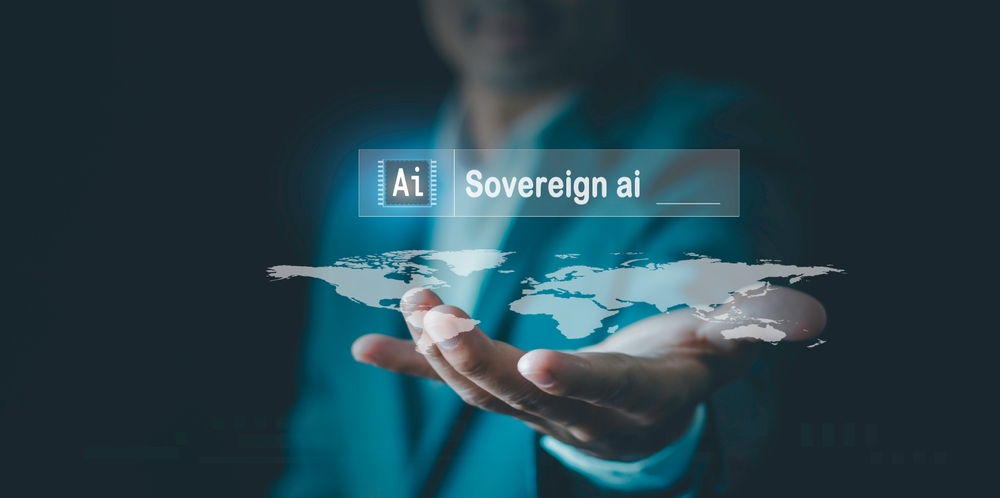The ability of a country to create artificial intelligence using its own data, labor, infrastructure, and business networks is known as “sovereign AI.”
To boost their economies, manage their own data, and capitalize on technological potential in sectors like transportation, communications, commerce, entertainment, and healthcare, nations have long made investments in domestic infrastructure.
The most significant technology of our day, AI, is accelerating innovation in all spheres of society. It is anticipated to produce productivity increases and economic returns worth trillions of dollars. To create and utilize such advantages independently, nations are fostering AI sovereignty.
Significance of Sovereign AI
The emergence of generative AI, which is altering markets, challenging governance models, creating new businesses, and revolutionizing others—from gaming to biopharma—has increased the global demand for countries to invest in digital sovereignty capabilities. The use of AI-powered “copilots” in a variety of industries is also changing the nature of labor.
Both digital and physical infrastructures are included in Sovereign AI. To foster inclusivity with particular dialects, cultures, and customs, the latter comprises sovereign foundation models, such as large language models, created by local teams and trained on local datasets.
For instance, voice AI models can support the revitalization, promotion, and preservation of indigenous languages. Furthermore, LLMs are not limited to teaching AIs human languages; they may also be used to write software code, safeguard customers against financial fraud, educate robots physical abilities, and much more.
Furthermore, sovereign AI governance has a crucial role to play in enabling every country to support its sustainability initiatives as accelerated computing and AI become more important tools for addressing climate change, increasing energy efficiency, and defending against cybersecurity threats.
Sovereign AI Vs. Public AI
AI models and data, including operational and training data, are stored and managed by sovereign AI policy systems. These systems are subject to national or regional regulations and restrictions for the usage of AI applications by only approved individuals and systems.
Governments, government contractors and service providers, government-affiliated organizations, and any company with potentially regulated data and applications are all using AI compliance.
You can consider “public AI” to be everything else—that is, apps and data that aren’t subject to sovereign AI considerations and other compliance regulations. Numerous consumer applications and business networks are included in that list.
Consider the LLMs utilized in numerous image generators, news aggregators, video conferencing systems, language translators, and Google Chat and Facebook’s AI features. A responsible AI may be of interest to banks, healthcare companies, educational institutions, and other organizations, however not all consumer AI software would be considered “public AI.”
Economic Considerations for Sovereign AI
GenAI increases productivity across a range of industries by automating repetitive operations and assisting creative, technical, and knowledge workers. This frees up firms to concentrate on strategic and innovative tasks. For example, GenAI can help the healthcare sector diagnose illnesses more quickly and accurately than ever before. It can enhance fraud detection systems in the financial industry, saving millions.
Additionally, developing a domestic AI industry boosts the high-tech sector, which in turn boosts other economic sectors that rely on it. Sovereign AI model is spearheading the next phase of digital transformation and is becoming broadly available and ubiquitous.
Consequently, developing a workforce with the know-how to utilize this technology will result in a thriving national innovative ecosystem that generates future technical breakthroughs and gives the country a competitive edge. Thus, sovereign AI not only has the potential to advance economies but also establish nations as leaders in the global digital economy.
National Security Considerations for Sovereign AI
By its very nature, digital sovereignty seeks to strengthen a country’s capacity to use AI strategically to safeguard and further its interests. For instance, the use of AI in the military is already expanding and will undoubtedly continue to do so, and the nexus between AI and cybersecurity is emerging as a major national and international concern.
By building domestic AI capabilities and guaranteeing national access to vital data, technology, knowledge, and infrastructure, Sovereign AI seeks to eventually lessen reliance on foreign AI technologies. This could strengthen national sovereignty by shielding the nation from possible supply chain interruptions.
Conclusion
“More.” The future of AI regulation may be summed up in one word. Additionally, you may anticipate that new use cases and future AI technology will spur new rules. Pictures? Videos? Social media? Sovereign AI concerns are likely to arise whenever your company’s data encounters AI, as well as anywhere your clients and staff may utilize AI.
How can you be most ready for this intricate and dynamic regulatory landscape? Finding the best service provider partners, selecting secure architectures and data models, and establishing comprehensive permissions may require additional work up front, but they should pay off as you strive to achieve your sovereign AI goals.


